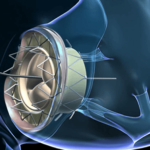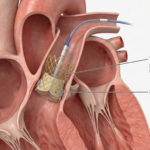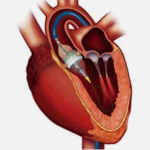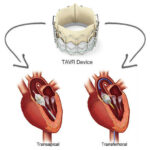Revolutionizing Heart Valve Replacement: The Rise of Transcatheter Procedures
Overcoming the Challenges of Open-Heart Surgery
Open-heart surgery has long been the standard approach for replacing damaged or diseased heart valves. However, this procedure can be incredibly complex, time-consuming, and challenging for patients to recover from. On average, patients undergoing open-heart surgery may need to spend 7-10 days in the hospital, enduring a lengthy and arduous recovery process.
For elderly patients or those with underlying health conditions, the physical toll of open-heart surgery can be even more daunting, making it difficult for them to return to their normal quality of life. The invasive nature of the procedure, the risk of complications, and the extended recovery period have long been significant drawbacks of this traditional approach to heart valve replacement.
Introducing Transcatheter Valve Replacement: A Minimally Invasive Solution
Fortunately, advancements in medical technology have paved the way for a revolutionary alternative to open-heart surgery: transcatheter valve replacement. This minimally invasive procedure allows for the replacement of a damaged heart valve without the need for a large incision or the breaking of the chest bone.
During a transcatheter valve replacement, the new valve is delivered to the heart through a small incision in the groin, using a catheter to guide it into place. This innovative approach not only reduces the physical trauma to the patient but also significantly shortens the recovery time, with many patients able to return home in just one or two days.
The Two Main Types of Transcatheter Valve Replacement
There are two primary types of transcatheter valve replacement procedures:
Transcatheter Aortic Valve Replacement (TAVR)
TAVR is a procedure used to replace the aortic valve, which is the main valve responsible for regulating blood flow out of the heart. This procedure has been widely adopted and is considered a safe and effective alternative to open-heart surgery for many patients.
Transcatheter Mitral Valve Replacement (TMVR)
TMVR is a more complex procedure that involves the replacement of the mitral valve, which is responsible for regulating blood flow between the upper and lower chambers of the heart. While TMVR has been available for less than 15 years, it has demonstrated promising results and is becoming an increasingly viable option for patients with mitral valve disease.
Pioneering Transcatheter Valve Replacement in India
Dr. A.B. Gopalamurugan and his team at the Heart Valve Centre in India have been at the forefront of introducing and advancing transcatheter valve replacement procedures in the country. In 2010, they were among the first to perform these groundbreaking procedures in India, and since then, they have successfully treated hundreds of patients.
Dr. Gopalamurugan and his team have also made significant contributions to the field, including performing the first-ever TMVR procedure in India. Additionally, they hold a Guinness World Record for performing 20 TAVR surgeries in a single hour, coordinating with 20 leading heart centers across the world to achieve this remarkable feat.
The Benefits of Transcatheter Valve Replacement
The advantages of transcatheter valve replacement over traditional open-heart surgery are numerous and compelling:
- Reduced Recovery Time: Patients can often return home in just 1-2 days, compared to the 7-10 days typically required for open-heart surgery.
- Minimally Invasive Procedure: The small incision in the groin and the use of a catheter to guide the new valve into place significantly reduce the physical trauma to the patient.
- Improved Outcomes for Elderly and High-Risk Patients: Transcatheter procedures are often better suited for elderly patients or those with underlying health conditions, who may not be able to withstand the rigors of open-heart surgery.
- Ongoing Advancements and Improved Accessibility: As the technology continues to evolve and more specialists become trained in these procedures, transcatheter valve replacement is becoming an increasingly viable and accessible option for a growing number of patients.
Embracing the Future of Heart Valve Replacement
The advent of transcatheter valve replacement has ushered in a new era of heart valve treatment, offering patients a safer, more efficient, and less complicated alternative to traditional open-heart surgery. With the expertise and pioneering work of specialists like Dr. Gopalamurugan and his team, this innovative approach is becoming increasingly available and accessible to patients in India and around the world.
As the field of transcatheter valve replacement continues to evolve and improve, it is clear that this minimally invasive procedure will play a crucial role in the future of heart valve treatment, helping to improve patient outcomes, reduce recovery times, and ultimately enhance the quality of life for those in need of this life-saving intervention.









